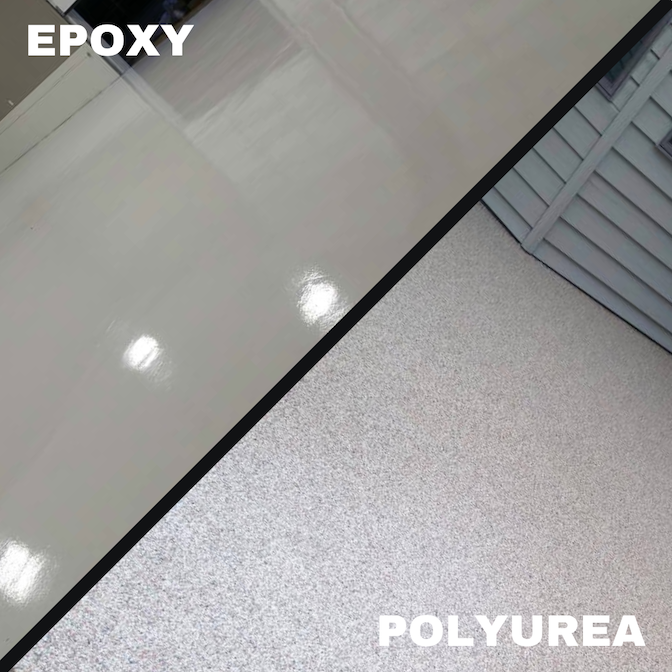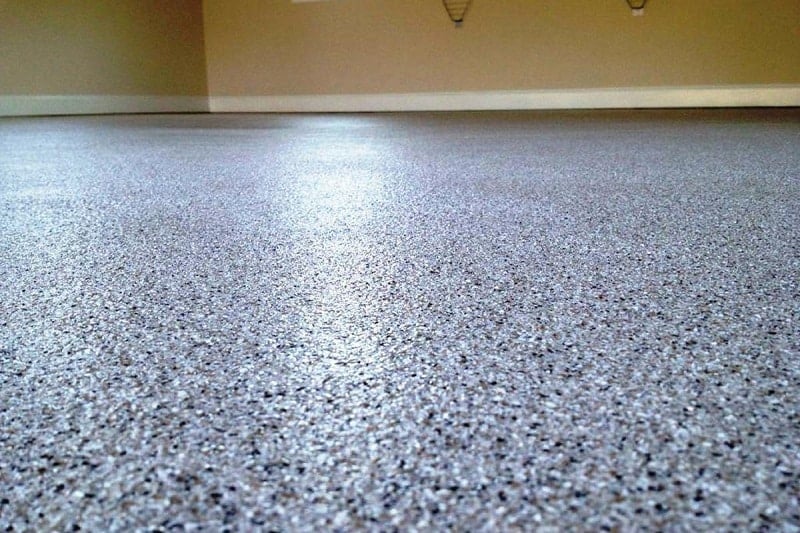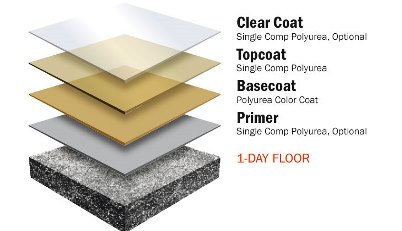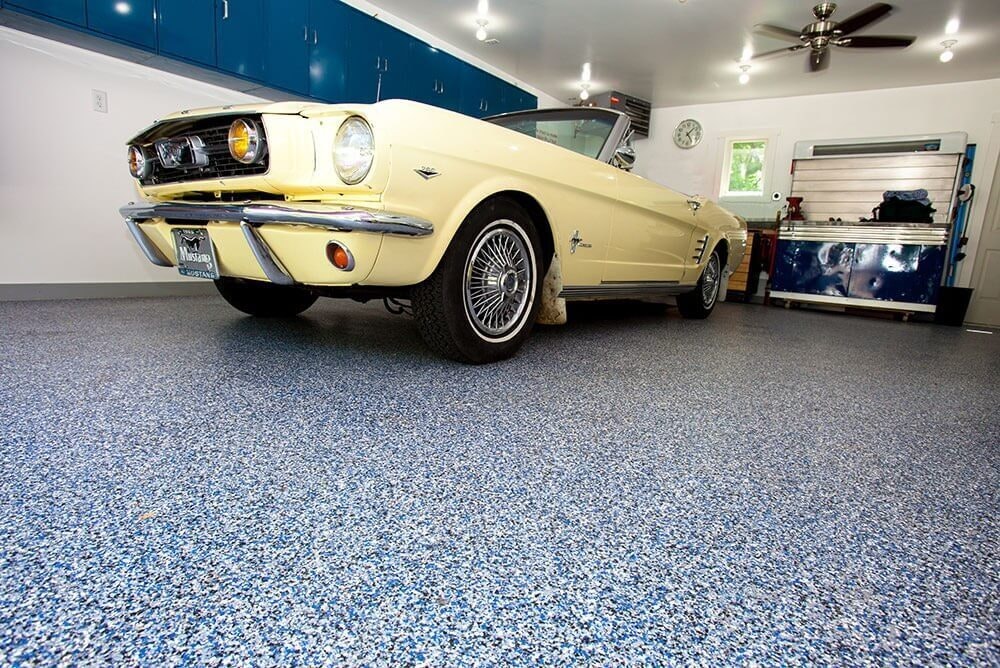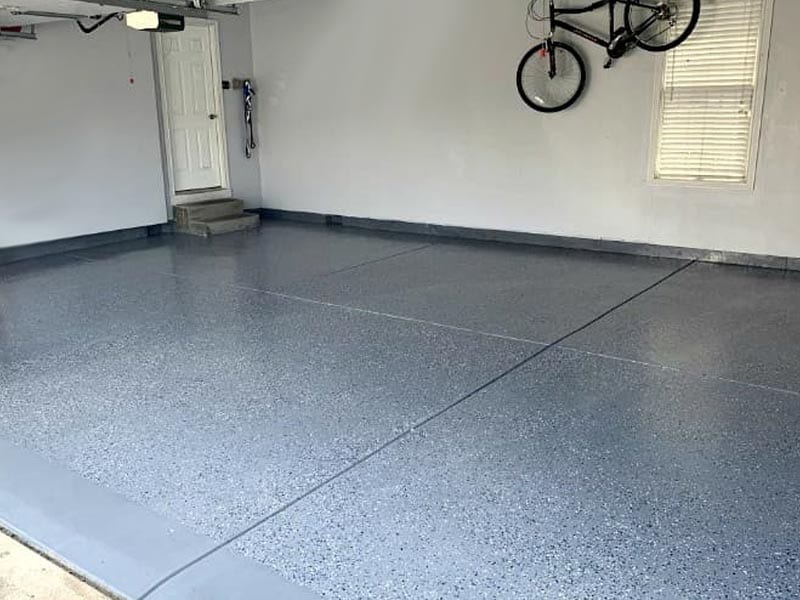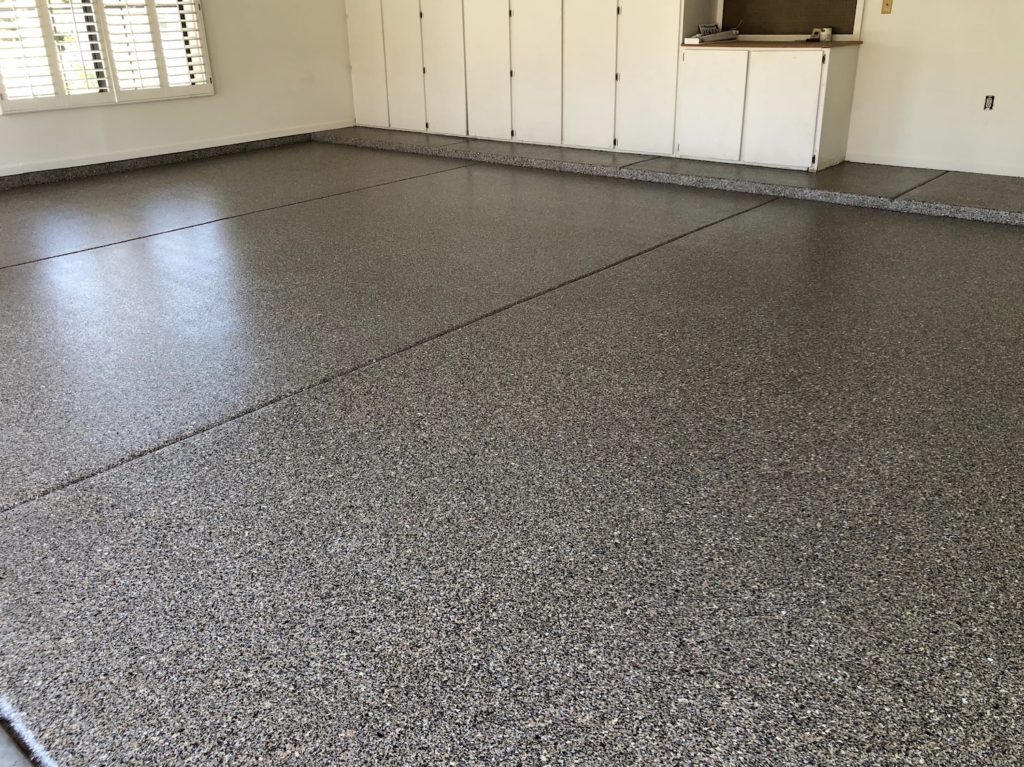When it comes to protecting and enhancing your floors, you’re faced with a critical decision: Polyurea Floor Coating or Epoxy? These two heavyweights in the world of floor coatings offer distinct advantages, and understanding their differences is crucial in making the right choice for your surfaces. In this exploration, we dissect the nuances, benefits, and applications of Polyurea Floor Coating and Epoxy, helping you uncover the superior option for your flooring needs.
Polyurea Floor Coating: Unveiling the Unyielding Protection
Polyurea Floor Coating isn’t just a layer; it’s a fortress of protection. Engineered to withstand heavy foot traffic, abrasions, and chemical spills, Polyurea forms an impermeable shield that guards your floors against the rigors of daily use. Whether it’s a garage floor that faces oil and vehicle fluids or an industrial setting that deals with harsh chemicals, Polyurea steps up as the formidable guardian, keeping your surfaces unblemished and ready to face any challenge.
Epoxy: The Aesthetic Marvel with Strength
Epoxy, the timeless favorite, marries beauty and durability in a seamless embrace. Beyond its impressive resilience against impacts and moisture, Epoxy offers an expansive palette of colors and designs that can transform your floors into works of art. From polished, sleek finishes to vibrant, eye-catching patterns, Epoxy isn’t just a coating; it’s a statement that amplifies your space’s aesthetics while providing exceptional strength.
Speed and Efficiency: The Polyurea Advantage
In the race against time, Polyurea takes the lead. One of its standout features is its rapid curing time. Unlike Epoxy, which requires meticulous attention to temperature and humidity conditions, Polyurea can be applied in various climates, thanks to its quick-drying nature. This efficiency not only reduces installation time but also minimizes disruptions to your daily routine.
Seamless Application and Flexibility: Epoxy’s Signature
Epoxy has a reputation for providing a smooth, seamless finish that enhances the overall visual appeal of your floors. Its ability to bond flawlessly with concrete surfaces creates a uniform expanse that exudes sophistication. Furthermore, Epoxy’s versatility extends beyond the typical floor application; it can be tailored to different settings, from residential interiors to commercial spaces, adapting its charm to various environments.
Unmatched Resilience: Polyurea’s Lasting Power
When it comes to extreme environments, Polyurea takes center stage. Its exceptional resistance to temperature fluctuations, UV rays, and chemicals ensures that your floors remain resilient even in the harshest conditions. Whether it’s an outdoor patio exposed to the elements or an industrial facility grappling with constant wear, Polyurea maintains its strength and integrity over time.
Enduring Durability: Epoxy’s Everlasting Charm
Epoxy is the embodiment of durability that stands the test of time. Its ability to withstand heavy loads, frequent foot traffic, and various impacts showcases its long-lasting nature. With proper maintenance, Epoxy floors can retain their glossy finish and structural integrity for years, making them a sound investment that pays off in the form of prolonged beauty and strength.
Sealing the Deal: Polyurea’s Watertight Benefits
Polyurea Floor Coating isn’t just about protection; it’s about preventing moisture intrusion. Its seamless, impermeable surface acts as a barrier against water, ensuring that no moisture seeps into your floors. This feature not only safeguards against damage but also minimizes the risk of mold growth and structural issues that can arise from water exposure.
Design Freedom: Epoxy’s Aesthetic Playground
Where aesthetics meet innovation, Epoxy shines. The design possibilities with Epoxy are virtually limitless. From marbled effects to metallic hues, Epoxy allows you to infuse your floors with your unique style. Its ability to seamlessly incorporate logos, patterns, and even 3D effects turns your floors into canvases of artistic expression.
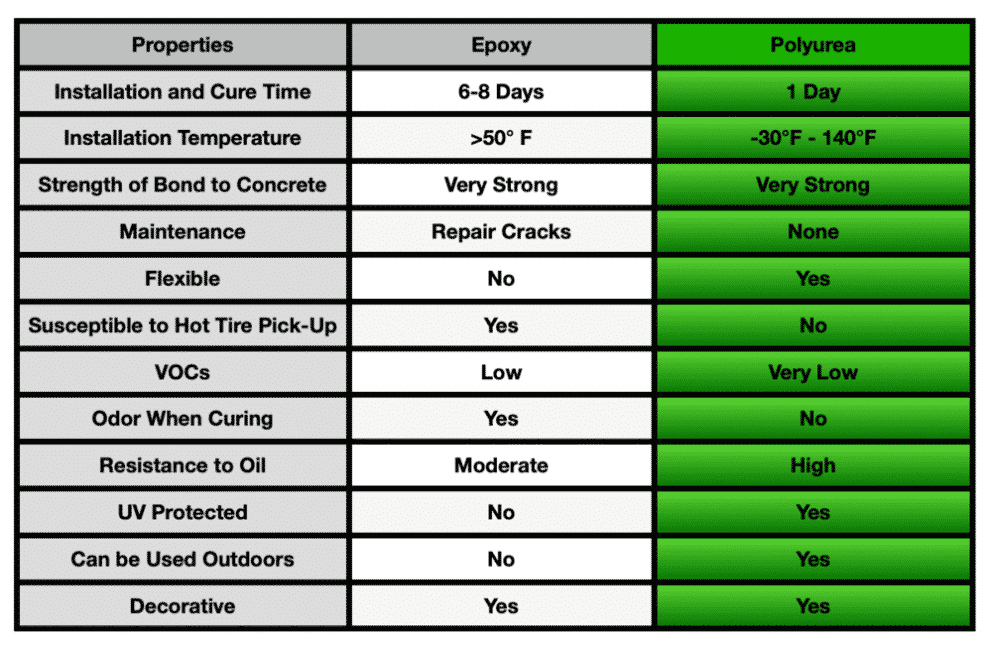
Epoxy Vs. Polyurea: Which Is Better For A Concrete Coating
Epoxy vs. Polyurea Coatings for a Garage Floor: Compared
Garage Floor Epoxy vs Polyurea — Simple Straight Answers
Epoxy vs. Polyurea Superior Garage Floor
Polyurea Floor Coatings vs Epoxy Floor Coatings – CCS MN
Epoxy vs Polyurethane: Which One Is the Best? B-Protek
Polyurea vs Epoxy: Comparing Concrete Floor Coating Options
Garage Floor Coatings Blackhawk Coatings
Epoxy Vs Polyurea and Polyaspartic – Epoxy Power by BMI
What is the best Floor Coating Option? “Paint Benefits, Pros
Related Posts:
- Epoxy Basement Floor DIY
- High Gloss Epoxy Floor
- Decorative Epoxy Flooring
- Epoxy Floor Garage DIY
- DIY Epoxy Kitchen Floor
- Best Epoxy Floor Paint For Garage
- DIY Epoxy Garage Floor
- Metallic Epoxy Floor
- DIY Garage Epoxy Floor
- Indoor Epoxy Flooring
Polyurea Floor Coating Vs Epoxy: Which is the Best Choice?
When it comes to choosing a floor coating, there are many factors to consider. Two of the most popular choices are polyurea and epoxy, but which one is the best option for your project? Here, we take a look at the pros and cons of both coatings, so you can make an informed decision.
Advantages of Polyurea Floor Coating
Polyurea floor coatings offer some unique advantages compared to epoxy. They are extremely durable and resistant to abrasion and chemicals, making them an ideal choice for industrial and commercial applications. Additionally, polyurea coatings cure quickly and can be applied in a single day, making them an efficient choice for busy sites. Finally, polyurea coatings are flexible and can move with the substrate to prevent cracking and flaking.
Benefits of Epoxy Floor Coating
Epoxy coatings offer a number of benefits as well. They are incredibly durable and are resistant to high temperatures and chemicals. Additionally, they are easy to clean and maintain, making them an ideal choice for busy environments. Finally, epoxy coatings can be applied in a variety of colors and textures, giving you more design options than polyurea.
Cost Comparison
When it comes to cost, both polyurea and epoxy floor coatings are relatively affordable. The cost of each material varies depending on the size and complexity of your project, as well as the type of coating you choose. Generally speaking, epoxy is slightly less expensive than polyurea due to its lower material costs.
Which is the Best Choice?
So which type of floor coating should you choose? Ultimately, the answer depends on your application. For industrial and commercial applications, where durability and long-term performance are essential, polyurea is often the best option. Its superior abrasion resistance makes it ideal for high-traffic areas, while its flexibility helps prevent cracking over time. For residential projects or projects in which aesthetics matter more than durability, epoxy may be the better choice. Its range of colors and textures gives you more design options than polyurea, while its resistance to high temperatures and chemicals makes it suitable for a variety of environments.
Conclusion
When it comes to choosing a floor coating, there is no one-size-fits-all solution. Each type of coating has its own advantages and disadvantages that should be taken into account before making a decision. By understanding the pros and cons of both polyurea and epoxy floor coatings, you can make an informed decision about which one is the best choice for your project.
